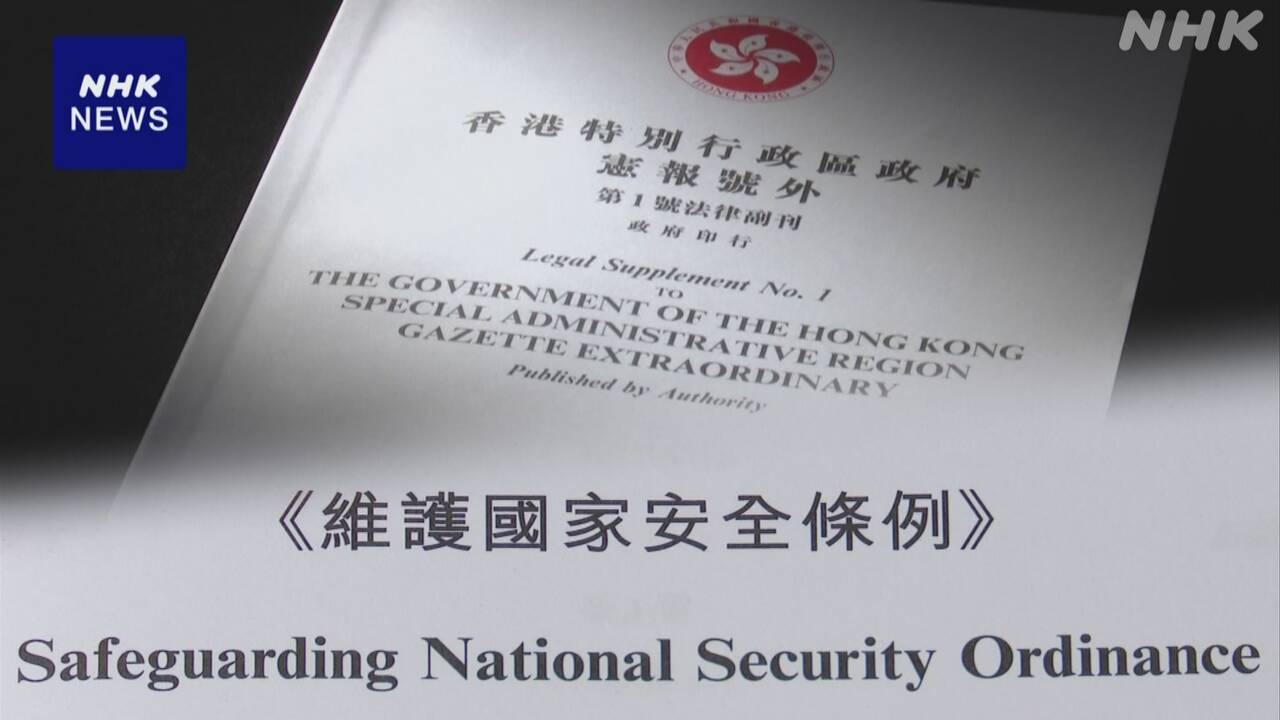The 30th marks one week since the National Security Ordinance, which cracks down on acts that threaten national security such as espionage, came into effect in Hong Kong. There are concerns among foreign companies about how the law will be applied regarding the definition of "state secrets."
Hong Kong's ``National Security Ordinance'' regulates crimes such as
theft of ``state secrets'', espionage,
and interference by foreign forces as crimes that threaten national security, and
was unanimously passed by Hong Kong's Parliament and Legislative Council. It took effect on the 23rd of May.
Although the Hong Kong government emphasizes that the law protects national security and creates a business-friendly environment, foreign companies have voiced concerns about the implementation of the law.
Johannes Hack, president of the German Chamber of Commerce and Industry in Hong Kong, said in an interview with NHK that the ordinance has not affected business so far, but that the definition of ``state secret'' in the article does not apply to mainland China. He pointed out that the ordinance is very broad, just like the previous law, and said, ``We need to continually look at how the ordinance will be implemented and how it will affect business.''
He also said that Hong Kong has special value as an international business center and that it is important to be able to express ideas freely, calling for ``a balance between national security and transparency to be maintained.'' expressed their desire to continue dialogue with the Hong Kong government regarding concerns and questions regarding operations.

